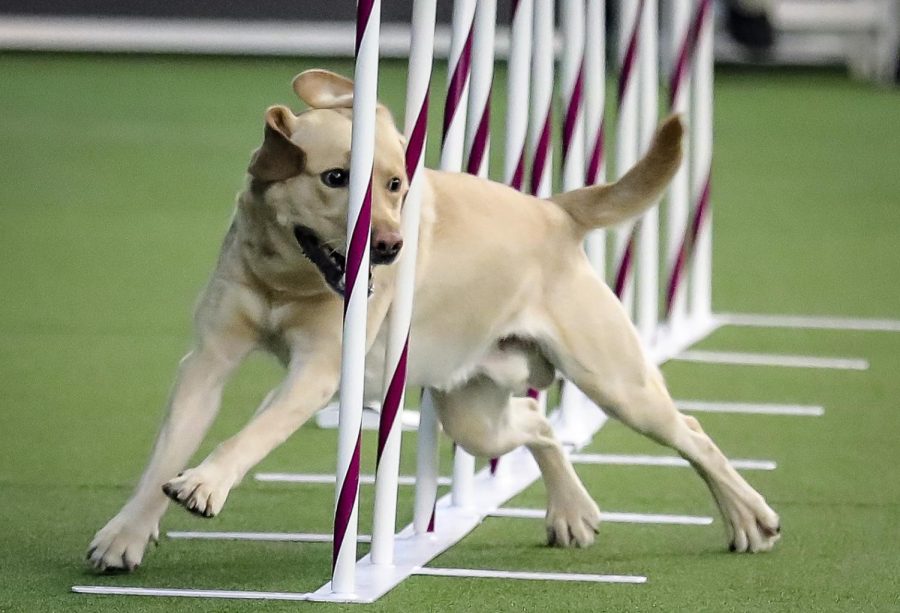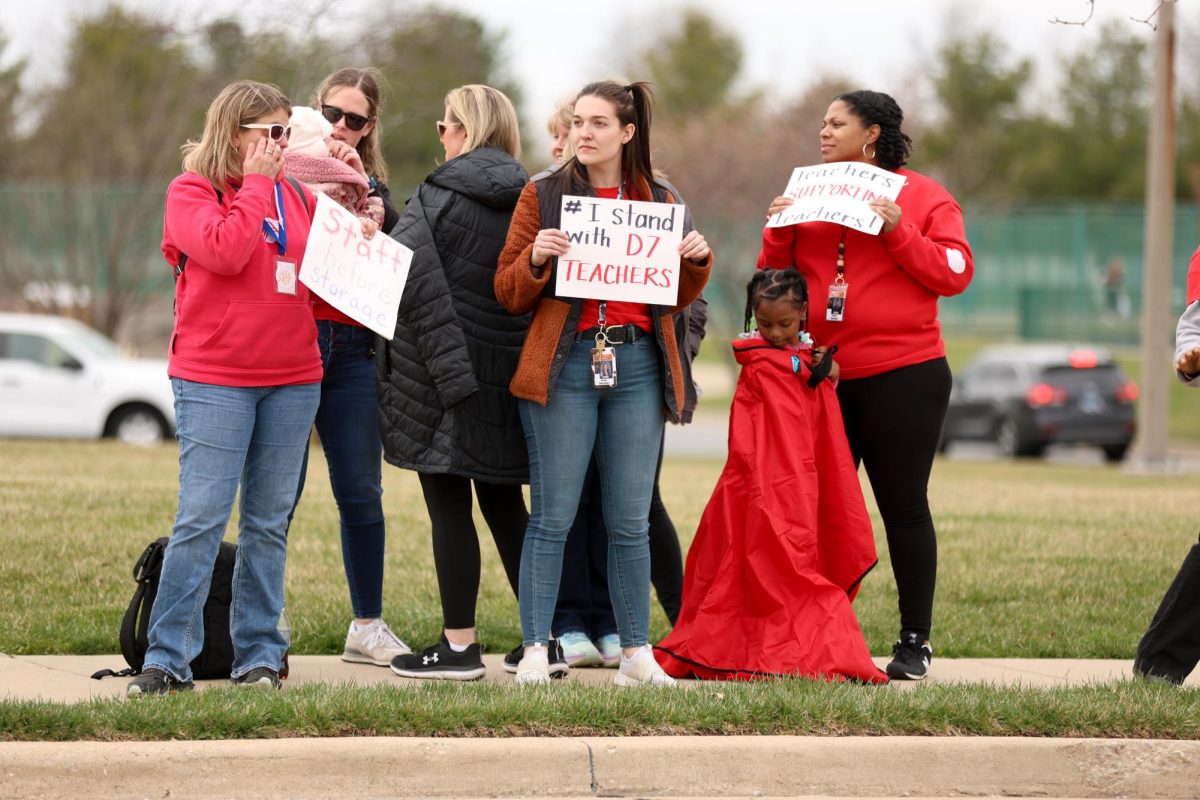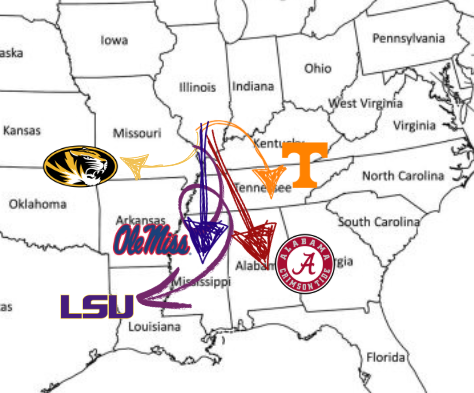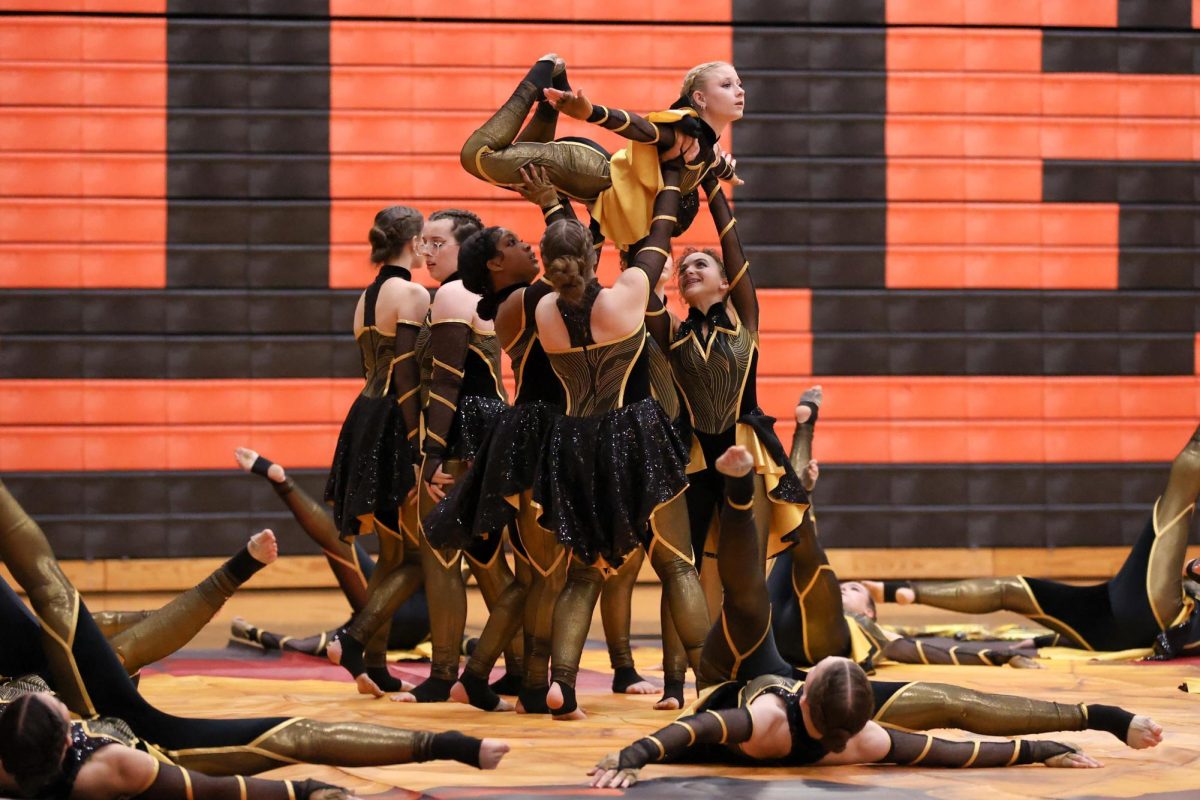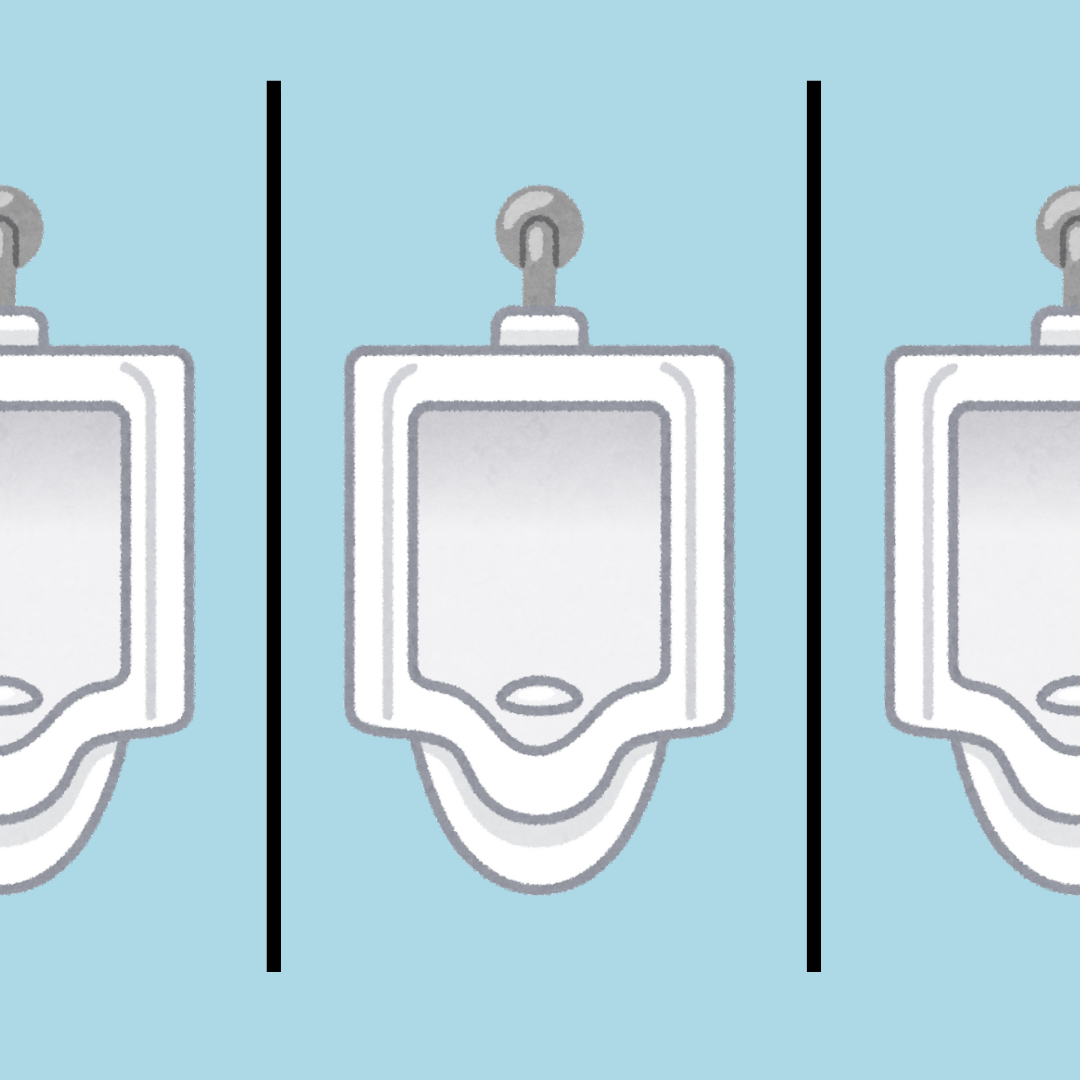EHS Student to Compete Internationally
In this Feb. 8, 2020 file photo, Tag, a Labrador retriever weaves, through a series of poles during Westminster Kennel Club’s agility competition in New York. Labrador retrievers remain the nations most popular purebreds for a record-extending 29th year. That’s according to American Kennel Club rankings being released Friday, May 1, 2020.
April 29, 2022
Each year, the American Kennel Club selects a group of 24 competitors 18 and younger and their dogs to compete on the Junior World Agility Team at the annual European competition.
The competition is broken up into three categories: Large, Medium and Small, according to the Junior Open Agility World Championship. These categories are then further divided into age categories: under 12, under 15 and under 19.
This year’s competition, after a two-year-long break, will be held in Vantaa, Finland in July. There, the 24 competitors will be tested on their ability to communicate and go through complex courses with their dogs.
Allyssa Daube, a junior at EHS, will be one of these 24 competitors in Finland this year with her dog Piper Grace, an all-American breed as described on the AKC website.
The AKC defines an all-American breed as a dog that is not considered purebred.
To qualify for the international competition, Daube had to submit an application to the AKC to be considered for the spot. This year, her first year applying, she was accepted.
“I had applied to be on the team, and we filled out a form online [where we] sent in [my] information and [my] dog’s information [along with] an essay and videos to show [my] skillset,” Daube said.
The typical course for Daube’s level consists of “some jumps, weave poles, a tunnel, the teeter, the A-frame and the dog walk.”
This course requires just as much from the dog going through the course as it does the trainer leading the dog.
Trainers have to both interact with the course, for example, when the dog is going over the A-frame, the trainer has to touch points on each side.
There are also obstacles called “backsides” that require extra communication between the trainer and the dog.
“Instead of going straight over it, your dog has to go around [and through] the other side,” Daube said.
But competing 3,000 miles away on this self-sponsored trip with a dog to transport is expensive. So, Daube is fundraising to pay her way to the competition.
She and another competitor from Athens, Illinois hosted a cornhole tournament and silent auction last Saturday, Apr. 23 to help raise money for their trip.
The trip is self-fundraised, making this fundraiser especially important.
“I do have to raise all of the money to go,” Daube said. “That’s the plane, the hotel and everything like that.”
From the fundraiser, the two competitors were able to raise $2,000 towards their trips.
Daube is not only looking forward to her upcoming trip this year but is also looking forward to the possibility of making the team again, but, as she acknowledges, anything can happen at the competition.
“You could be running and then your dog jumps wrong and tweaks their hip,” she said. “You don’t know what’s going to happen, [but] I really hope I am on the team again.”


